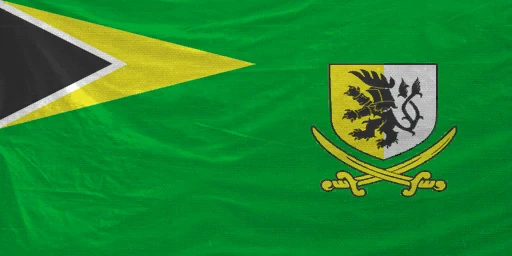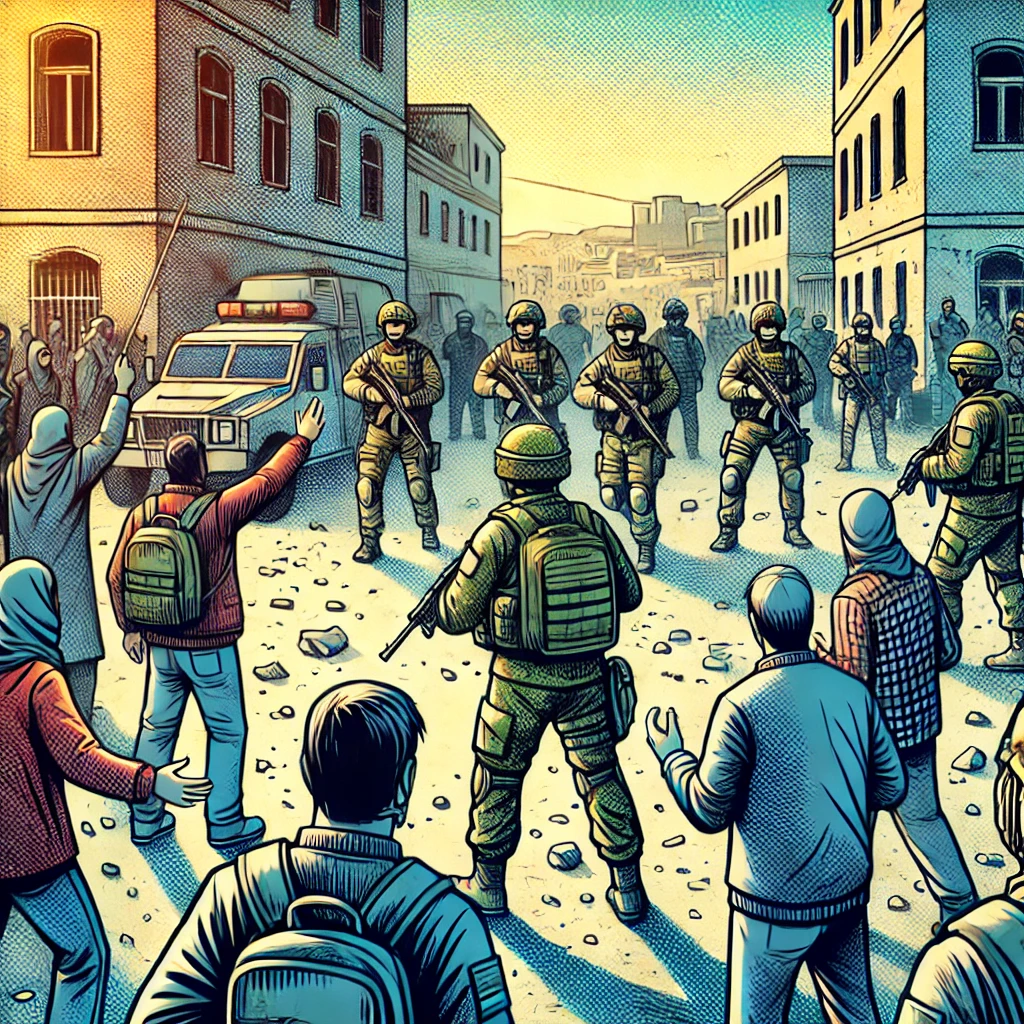Escalating Tensions in the Mediterranean: Altis at a Crossroads
In a recent and significant development on the Mediterranean island of Altis, local government officials welcomed a high-level Russian delegation to discuss future collaborations amid a backdrop of escalating internal strife and regional uncertainty.

Flag of Altis Armed Forces
Altis, Mediterranean - ANN News Report
Rising Unrest in Altis
Over the past several weeks, the situation on Altis has become increasingly volatile, following widespread unrest in the key cities of Sofia and Athira. Initially sparked by severe economic downturns and austerity measures, the protests quickly escalated into full-blown riots. Clashes between the military and civilians have been frequent and intense, with several instances where the army and local police forces have engaged in confrontations, reflecting deep-seated divisions within the security forces themselves. These internal conflicts have exposed the fragility of Altis’s political landscape, highlighting the dissatisfaction with the current leadership and growing fears of a larger conflict.
Emergence of Extremist Groups
Recent WikiLeaks revelations have brought to light that both the governments of Altis and its neighboring island Stratis have been covertly financing extremist groups to perform the “dirty work” of stifling opposition and maintaining their grip on power. These groups are allegedly involved in various underhanded activities ranging from intimidation campaigns to outright assassinations of political adversaries, adding another layer of complexity and danger to the already explosive situation on the island.
Deepening Economic and Political Crisis
The island’s economy, heavily reliant on tourism and small-scale exports, has suffered from prolonged instability in the region. Recent sanctions and a decrease in foreign investments have exacerbated the economic plight, leading to heightened public discontent and an alarming rise in unemployment rates. Political analysts suggest that the current government’s decision to seek closer ties with Russia may be a desperate move to secure economic aid and military support in face of the mounting internal and external pressures.

Comics picture of riots
NATO’s Strategic Presence
Altis and Stratis are home to several NATO military bases, underscoring their strategic importance in the Mediterranean Sea. Despite the tumultuous environment, NATO spokesperson has confirmed that there are no current plans to evacuate the islands. However, forces remain on high alert. A recent public incident at one of the NATO bases highlights the tense atmosphere: several civilians, fleeing from the local military, sought asylum and assistance from NATO troops. While the encounter reportedly involved gunfire involving Altis army personnel, NATO forces, and civilians at the base’s gate, NATO has confirmed that it suffered no casualties. The specifics of the incident remain unclear, and the government of Altis has declined to comment on the matter.
A Precarious Future
As talks with the Russian delegation continue, many international observers are concerned that these developments might signify a shift in regional power dynamics, potentially leading to further militarization of Altis. The presence of foreign military interests on the island could complicate the already tense situation, risking a broader geopolitical conflict. Meanwhile, the citizens of Altis remain caught in a precarious situation, with the future looking uncertain and potentially grim.
As the island stands at a crossroads, the international community watches closely, hoping diplomatic efforts will prevail over the rising drumbeats of war. The outcome of the ongoing negotiations and the government’s ability to address the grievances of its people will be crucial in determining whether Altis can navigate its way to peace or spiral into further chaos.